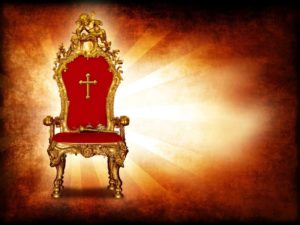 We’ve looked at what the Kingdom is and where it is.
We’ve looked at what the Kingdom is and where it is.
Now it’s time to explore the why of the Kingdom.
Why does the Kingdom exist?
To answer this question, we need to go back to the beginning. In the beginning, God created a paradise on earth. There was beauty, community, provision, abundance, and freedom. Genesis 1, 2. Man rebelled, and creation became fractured. Francis Schaeffer described what resulted as the four separations: Man became separated from God, from himself, from others, and from nature.
When God came looking for man, man hid from God (separation from God). Man felt guilty and afraid (man’s separation from himself). Man blamed his wife for what happened (man’s separation from others). And the ground began to bring forth thorns and thistles, and man had toil to gather food from nature (man’s separation from nature). Genesis 3. That pretty much sums up what is wrong with the world. In fact, all the world’s problems fit neatly into one or more of those boxes.
The question then became how would God fix these separations? The answer was simple; it was the means by which that answer would be carried out which was a mystery. The answer was simple because if something is separated it must be brought back together. The opposite of separation is reconciliation. These separations needed to be reconciled. The question was how God would achieve this reconciliation. The kingdom of God is the answer.
The Apostle Paul said that God’s kingdom was an administration “suitable” for, or having the purpose of, the “summing up of all things in Christ, things in the heavens and things on the earth.” Ephesians 1:10-11. Thayer’s Greek Lexicon explains the translation of this Greek phrase as meaning, “. . . . to bring together again for himself [. . .] all things and beings (hitherto disunited by sin) into one combined state of fellowship in Christ, the universal bond . . .” Jesus, and His kingdom, is God’s means for reconciliation.
Paul expresses the same thought in his letter to the Colossians, where he says it was God’s good pleasure to reconcile all things to Himself through Jesus, whether those things were in heaven or on the earth. Colossians 1:19-20. This doesn’t mean all people will be reconciled to God. Jesus made this clear in the Parable of the Sower and the Parable of Wheat and Tares, among many other teachings. It does mean the Kingdom is “suitable” or capable of reconciling all of creation where it is broken, meaning, people, relationships, and nature.
Now here is where the rubber meets the road. Kingdom citizens are coworkers with King Jesus in reconciling creation because God “reconciled us to Himself through Christ, and gave us the ministry of reconciliation.” 2 Corinthians 5:18 (emphasis added). Our role in carrying out the will and reign of King Jesus on earth is to minister reconciliation in all four separations. We do that first by being reconciled to God, ourselves, and others and we do that by helping others be reconciled to God, themselves, and others.
And then there is nature. The Bible says all creation groaned and suffered the pains of childbirth until King Jesus’s arrival on earth but that creation is set free from its “slavery to corruption into the freedom of the glory of the children of God,” i.e. Kingdom citizens. Romans 8:21-22. Nature, the non-human part of creation, is waiting for Kingdom citizens to bring God’s original intent of order, beauty, abundance, and provision to it.
Reconciliation will be fully and finally accomplished when King Jesus returns.
So, why does the kingdom of God exist? The kingdom of God is God’s administration for reconciling creation to Himself through Jesus. GS.
